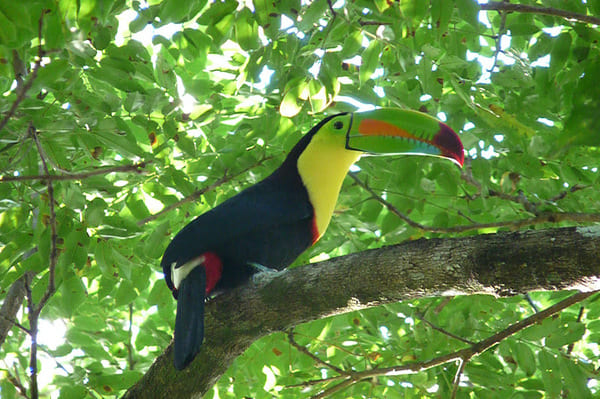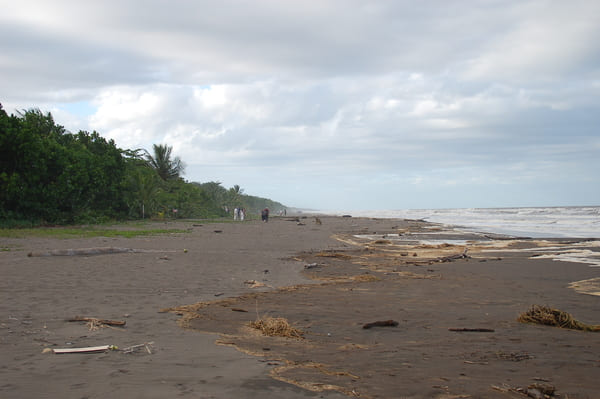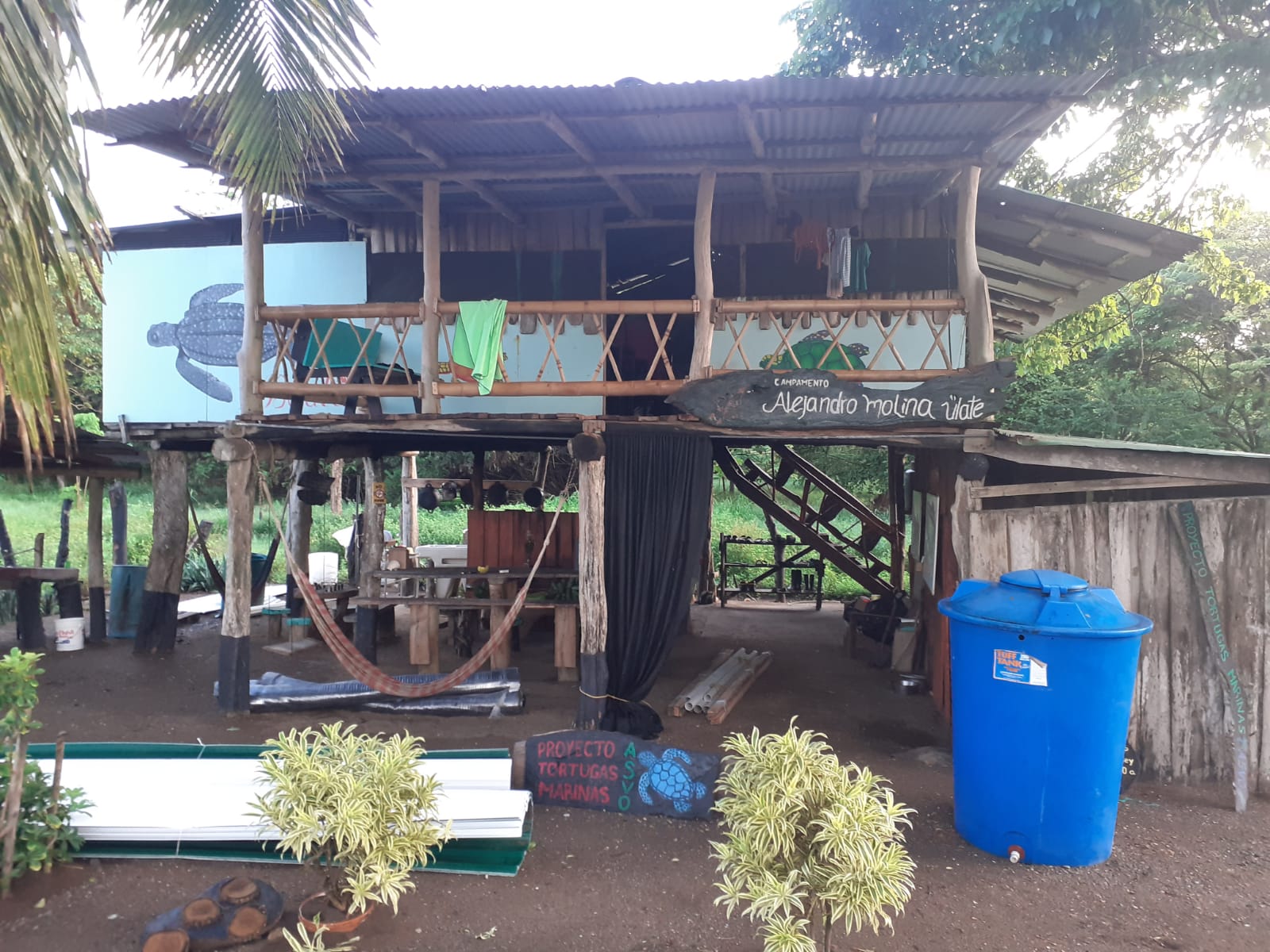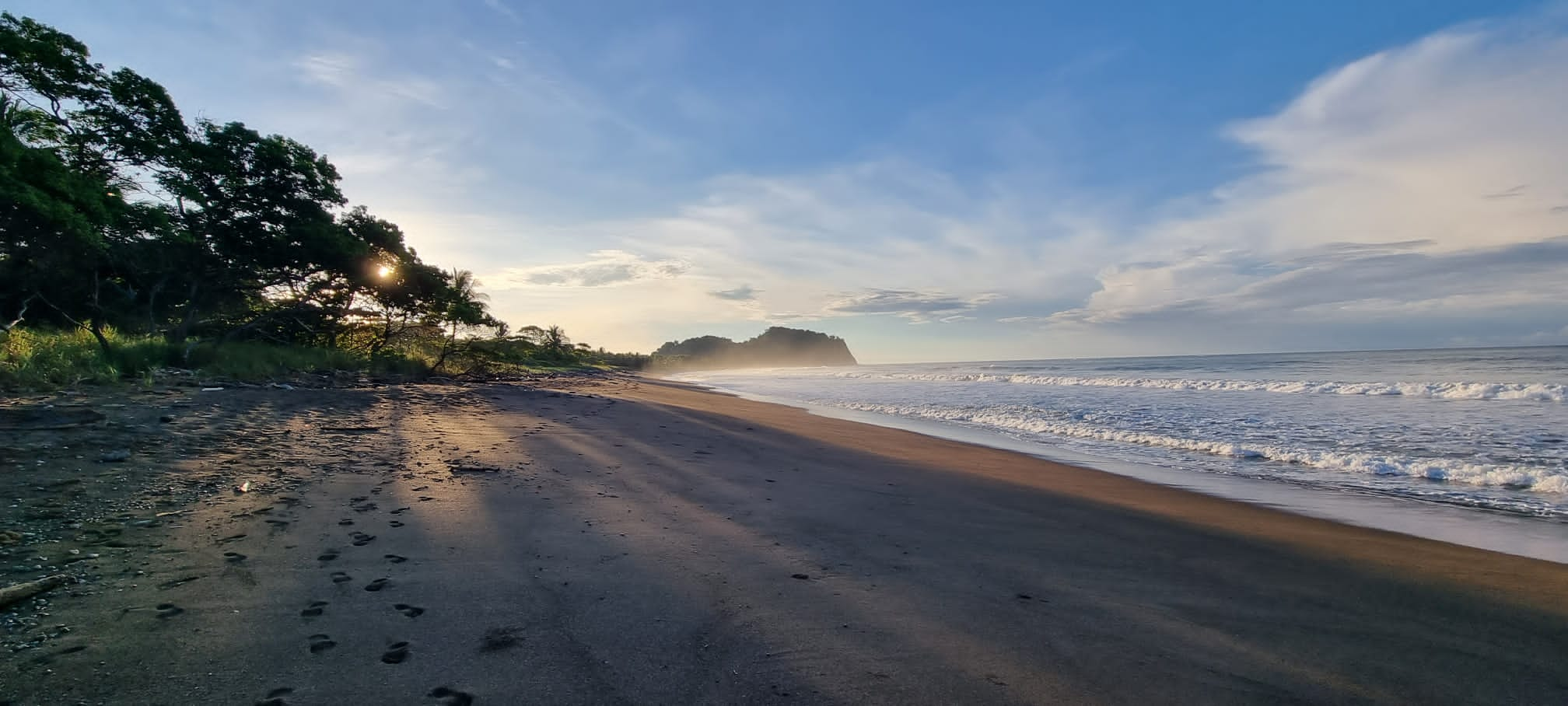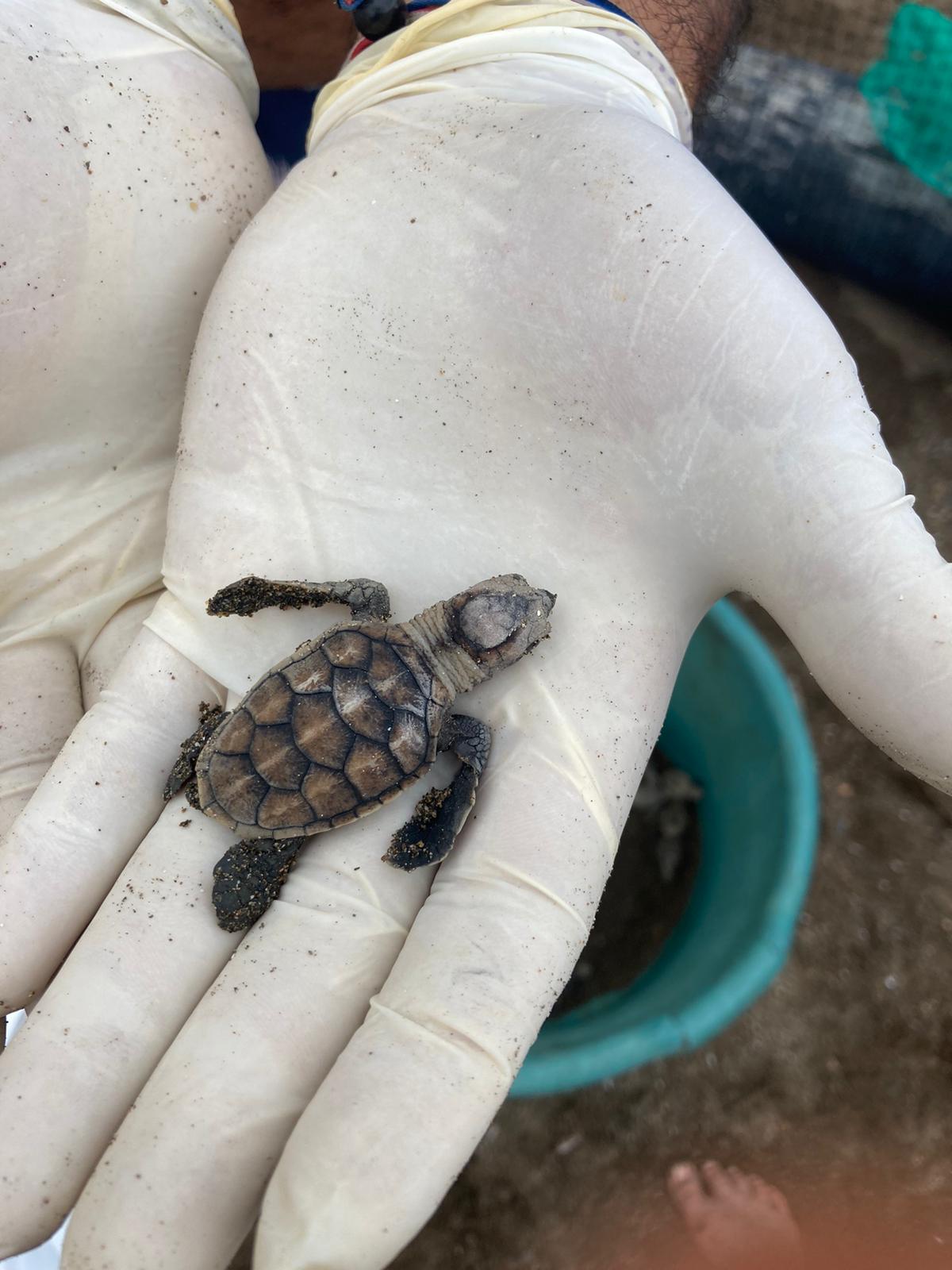Language School
SEA TURTLE CONSERVATION TORTUGUERO
- LanguageSpanish
- City, CountryLimón Province, Costa Rica
- Localisation
- CoursesThe sea turtle conservation program is a scientific-based conservation activity in which the organizations involved try to increase the amount of sea turtle hatchings in order to give higher survival rates.
The ... campsrates.
The camps are located within walking distances from the beach. Apart from the sea turtles, you will also have high chances of seeing tropical birds, iguanas and monkeys. The main goal of these projects is to help the recovery of sea turtle populations. The species of sea turtles that you can find on these beaches are: Olive riddle, Leatherback, Black sea turtle, depending on which project and season you visit.
The high season is from May to December in this project. You can come the rest of the months since there is work in the project. Activities like reforestation, cleaning the beach and community work are done all the year. There is always something to do.
Working fields for the volunteer :
- Protect the flora and fauna of the jungle and the ocean turtle nesting at Tortuguero beach
- Monitoring and maintaining of the ASVO Tortuguero reservation
- Day and Night patrols in collaboration with the National Park Tortuguero and other organizations for collection of information about the sea turtles.
- Day walks to secure the safety of the eggs and hatchlings
- Boat/ATV rides into the wildlife refuge areas and the national park to assist the park rangers
- Inform tourists on how to deal with the hatchlings, what to do and what not to do
- Construction and reparation of the trails for public use at Tortuguero beach.
- Maintenance of the infrastructure of the project
- Cleaning of the beach and surrounding area of the Town
- Assisting the national park in his projects and his daily work (monitoring of
animals, tramp-cameras, administration work, investigation work, social
work etc.)
- Collecting seeds from the jungle for the greenhouse project
- Reforestation of the beach in order to protect the hatchlings from the light
of the town
- Support in environmental education activities and communal protection
- Community activities (schools, high school workshops, festivals “Day of the
Jaguar” etc.)
- Night patrols (3-5 days a week, 3-6 hours per night, depends on the season)
Schedule of the volunteers:
40 or 48 hours per week, 6 or 10 hours a day, 6 days a week. Sundays off. - AccomodationThe place is a building (normal house) with rooms, it has electricity, potable water and a phone. There is no WIFI. There is no hot water. The volunteers will live in “simple” conditions and in a shared ... dorm.shared dorm.
- Price
Capacity:
Maximum of 12 volunteers. Minimum stay of 2 weeks, there is no maximum time.
The total cost of your volunteer program with our partner will be:
The cost of your volunteer project (700$ for 4 weeks) + the administrative fee (165$ for 4 weeks) + 35$ for the pickup from the airport + orientation day (29$ for 2 nights in a hotel and 40$ for the food).
The Spanish class is optional, classes will be given online and individual, price: 10$ per hour
The total fee of the project will be calculated with the coordinator of SVI.
You can find videos of ASVO Tortuguero and the work the volunteers do on their YouTube channel: ASVO official or by just typing in ASVO Tortuguero.Tortuguero is actually more than just a Sea Turtle Project, volunteers can work in other topics such as eco farming and monitoring of other local species of flora and fauna. It needs to be clear to volunteers that during low season, the job with turtles decreases and other activities will be held around the local community.
- Contact
About the language school
ACI Costa Rica is a non-profit organization founded in 1967, whose main goal is to promote programs of intercultural learning and international volunteer service (IVS) for people from all around of the world, facilitating their experience in social and ecological projects, developing global citizens. ACI wants to contribute to solidarity and friendship between the different societies of our globalized world, to sustainable human development, and personal growth of our participants. Our organization is an active full member of the International Cultural Youth Exchange (ICYE), a federation of more than 40 intercultural and IVS organizations located in the five continents. ICYE Headquarters are placed in Berlin, Germany. The federation of ICYE has been recognized as International Peace Messenger by the United Nations. ACI Costa Rica has developed partnerships with other networks and programs such as: The Committee of Coordination of International Voluntary Service (CCIVS), associate to UNESCO, The Alliance of European Organizations (ALLIANCE), Volunteering Matters from United Kingdom (VM), VolontEUROPE, Weltwärs from the German government, and ERASMUS + from the European Union. The experiences we promote are mainly focused on incoming and outgoing programs, involving long and short-term periods, for groups and individuals. These programs are managed in cooperation with our local Costa Rican networks, partner organizations and communities such as: The Federation of Social Organizations (FOS) and YO ME UNO from the private initiate, and others.
ACI’s objectives:
- Promote brotherhood and solidarity between humans
- Work towards a sustainable human development
- Encourage substantial changes and harmonize the relationship between humanity and nature
Possible leisure activities
Tortuguero is a wonderful place where you can observe 400 species of birds, 400 varieties of trees and more than 2000 varieties of plants. Visiting the Tortuguero National Park (15$) is a must and you will learn a lot about all the species: monkeys, spiders, crocodiles, boas, frogs, toucan, etc.
About food
Here are several typical dishes from Costa Rica:
- Gallo pinto or just pinto: breakfast dish made of rice and beans, spicy ingredients with Salsa Lizano (mix of onion, cauliflower, carrot, cumcumber, salt, sugar and spices)
- Casado: the most traditional dish of the country, it can be a mix of rice, beans, salad, tortillas, fried platano maduro and meat (beef, pork, chicken or fish) often served with fresh fruit juice
- Tamale: often served for breakfast, ingredients wrapped in banana leaves, it can be sweet or savoury (meat, vegetables, chocolate, fruits, etc.)
- arroz con leche: rice pudding, but with sugar, salt, lemon zest and cinnamon sticks
Meeting point
Please arrive to Costa Rica 3 days before you start the project. You will have an orientation meeting in San Jose the second day. The third day you will travel to the project. ASVO projects receive volunteers all the week.
Requirements
Required skills and interests of the volunteer:
- Has to be an organized, structured person. (Very important).
- The volunteer needs to like it/needs to have the willingness to work in a natural tropic forest and beach and to work physically.
- Basic Spanish Level and basic English
- To be respectful towards the internal rules of the project
- To love nature as the main goal of these projects is the protection of turtles
- To be in good physical condition as the patrols imply long walks along the beach at night and the jungle walks
- To be open to share accommodation and bedroom with other volunteers
- To be very flexible and to do different tasks during the day which may involve cooking and cleaning as volunteers may be also responsible of taking care of the camp
- Interest in environmental issues.
- The volunteer should enjoy working with people and foster good human relations.
- Proactivity is a must.
- Volunteers must be ready to work independently even when the coordinator is not present.
- Honest, responsible, punctual, positive person.
- Leadership Skills.
- Good attitude.
- Open to flexibility of schedules.
- Optional skills (cooking-, carpentry-, electricity-skills etc.)
All volunteers have to bring linens (sheets, blankets), mosquito repellent, sun block, personal articles, comfortable and light clothes, comfortable shoes (closed for work), water bottle, flashlight with red light (mandatory). Dark clothes for night patrols.
You can find videos of ASVO Tortuguero and the work the volunteers do on their Youtube channel: ASVO official or by just typing in ASVO Tortuguero.

